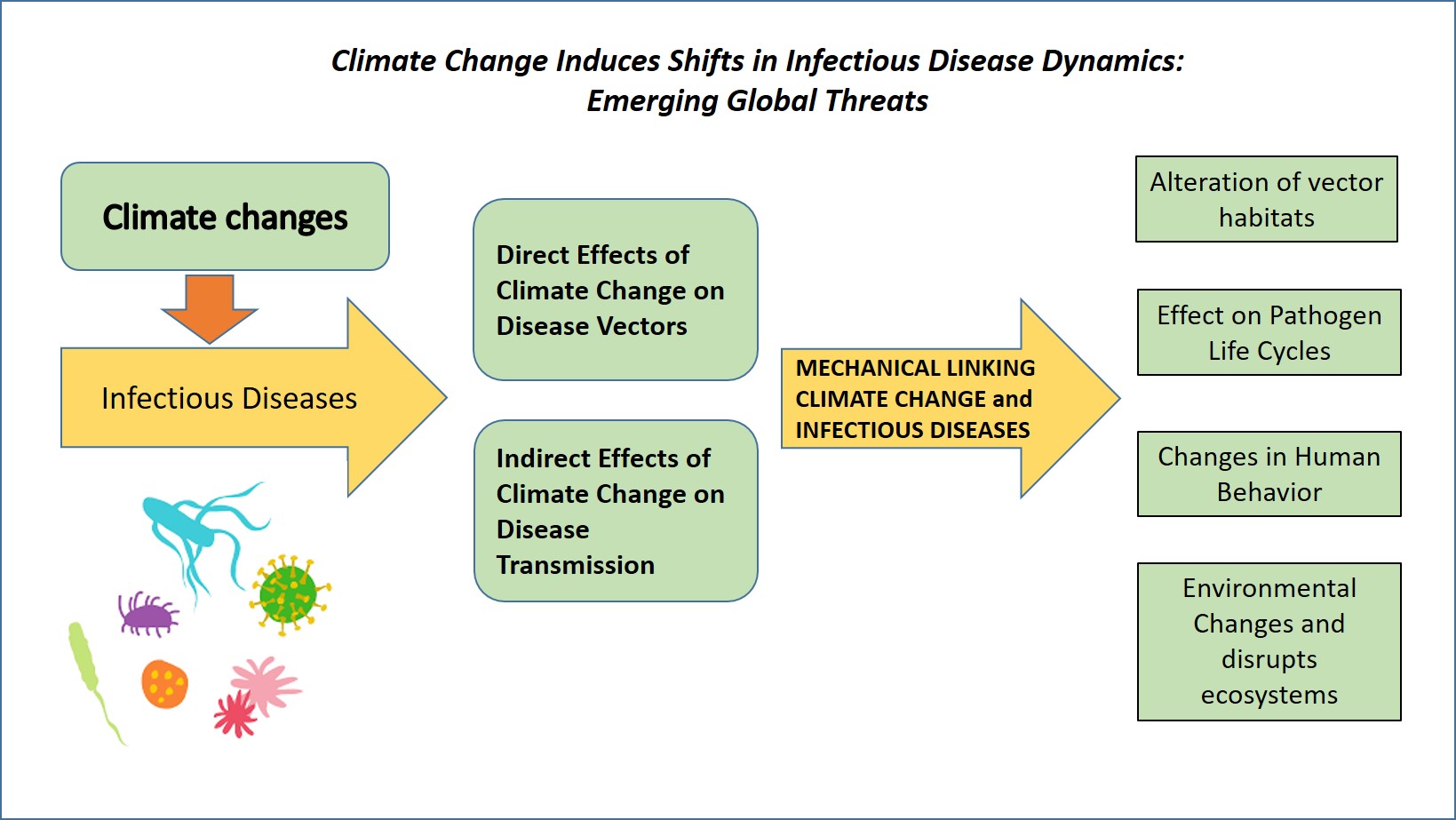Climate Change Induces Shifts in Infectious Disease Dynamics: Emerging Global Threats
Keywords:
CCHF, Climate changes, Infectious diseases, Vector-Borne Diseases, Waterborne Diseases.Abstract
Climate change and infectious diseases have been topics of interest for professionals such as Environmental Scientists, Ecologists, Public Health professionals, and Social Psychologists. The relationship between climate change and infectious diseases is complex, affecting the environment, social and economic conditions, and human health. It affects pathogens, vectors, transmission routes, and the human population's susceptibility to diseases. Infectious diseases like malaria, dengue fever, cholera, and influenza are sensitive to climate change, and scientists are focusing on better modeling, preemptive warnings, and new technologies like biosurveillance, artificial intelligence, and vaccine development to reduce the consequences of climate change for new and re-emerging diseases. A combination of multi-level and multi-sectoral efforts and a global approach is required to monitor and respond to future outbreaks. This paper will explore effective measures in preventing diseases related to climate change and the existing scientific evidence to prove its impact on infectious diseases.

Downloads
Published
Issue
Section
License

This work is licensed under a Creative Commons Attribution-NonCommercial-NoDerivatives 4.0 International License.
All articles in the World Journal of Experimental Biosciences are published under the terms of the Creative Commons Attribution 4.0 International License (CC BY 4.0), which permits unrestricted use, distribution, and reproduction in any medium, provided the original work is properly cited.



